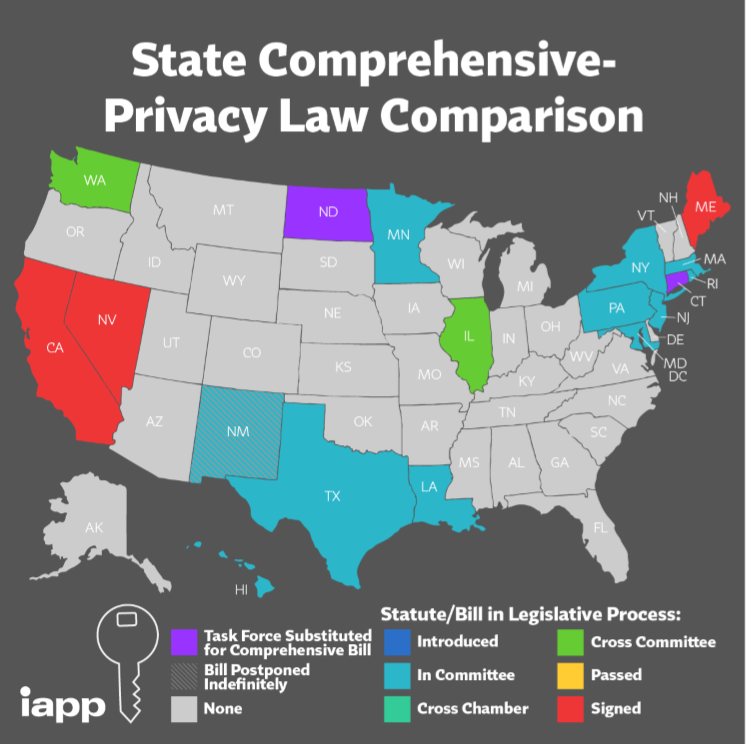If You’re Going to Store Cookies, EU Court Says You Need the Users’ Active Consent: Data Privacy Trends
After two weeks in Italy, of course my first post back had to be a post about Europe, right? ;o) Regardless, while I was out last week, a notable decision was announced by the Court of Justice of the European Union which might impact a few people (i.e., anyone from the EU who accesses websites).
Anyway, as covered in Rob Robinson’s terrific Complex Discovery blog last week (Storing Cookies Requires Internet Users’ Active Consent Says Court of Justice of the European Union), in Case C-673/17, Bundesverband der Verbraucherzentralen und Verbraucherverbände ̶ Verbraucherzentrale Bundesverband eV v Planet49 GmbH, the Court of Justice of the European Union decided that the consent which a website user must give to the storage of and access to cookies on his or her equipment is not validly constituted by way of a prechecked checkbox which that user must deselect to refuse his or her consent.
Per the press announcement from the Court of Justice of the European Union, the German Federation of Consumer Organisations challenged the use by the German company, Planet49, of a pre-ticked checkbox in connection with online promotional games, by which internet users wishing to participate consent to the storage of cookies before the German courts. As a result, the Bundesgerichtshof (Federal Court of Justice, Germany) asked the Court of Justice to interpret the EU law on the protection of electronic communications privacy. P.S., don’t ask me to pronounce some of these words… ;o)
That decision is unaffected by whether or not the information stored or accessed on the user’s equipment is personal data. EU law aims to protect the user from any interference with his or her private life, in particular, from the risk that hidden identifiers and other similar devices enter those users’ terminal equipment without their knowledge.
The Court notes that consent must be specific so that the fact that a user selects the button to participate in a promotional lottery is not sufficient for it to be concluded that the user validly gave his or her consent to the storage of cookies.
Furthermore, according to the Court, the information that the service provider must give to a user includes the duration of the operation of cookies and whether or not third parties may have access to those cookies.
Interesting data privacy developments continue that will certainly shape how we not only share information, but even use websites going forward. It will be interesting to see what the landscape for internet use looks like a few years from now.
BTW, as noted above, I’ve been gone for two weeks, so I want to give a BIG THANKS to Tom O’Connor for his terrific white paper on 30(b)(6) witness depositions that we were able to cover as a six-part series on our blog for the past two weeks. So, instead of giving you the “best of eDiscovery Daily” these past two weeks, we were able to give you new content!
Also, BTW, Complex Discovery is currently conducting its Fall 2019 eDiscovery Business Confidence Survey. This is the sixteenth quarterly eDiscovery Business Confidence Survey conducted by Complex Discovery. All questions are multiple-choice, and the entire survey can be completed in about two minutes, so please check it out and feel free to participate.
So, what do you think? Will this ruling affect how websites request consent for cookies? Please share any comments you might have or if you’d like to know more about a particular topic.

Sponsor: This blog is sponsored by CloudNine, which is a data and legal discovery technology company with proven expertise in simplifying and automating the discovery of data for audits, investigations, and litigation. Used by legal and business customers worldwide including more than 50 of the top 250 Am Law firms and many of the world’s leading corporations, CloudNine’s eDiscovery automation software and services help customers gain insight and intelligence on electronic data.
Disclaimer: The views represented herein are exclusively the views of the author, and do not necessarily represent the views held by CloudNine. eDiscovery Daily is made available by CloudNine solely for educational purposes to provide general information about general eDiscovery principles and not to provide specific legal advice applicable to any particular circumstance. eDiscovery Daily should not be used as a substitute for competent legal advice from a lawyer you have retained and who has agreed to represent you.











